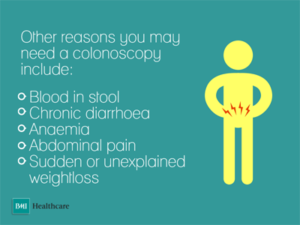Netdoctor |
5 foods that might help your eczema
Netdoctor Eczema is a condition that can be miserable to live with. It is a chronic, inflammatory skin condition that can leave you with red, dry, itchy, scaly skin. Sometimes there are tiny blisters and often the skin can split, causing pain. It's common for … |



Tag Archives: might
Why you might wee when you are running or exercising?
 Most women, at some point in their lives have experienced urine leakage while running, but never talk about it and more often than not, this is due to weaker bladder muscles. Exercising should be enjoyable and not uncomfortable and there are a number of things you can do to effectively manage and in many cases improve the problem.
Most women, at some point in their lives have experienced urine leakage while running, but never talk about it and more often than not, this is due to weaker bladder muscles. Exercising should be enjoyable and not uncomfortable and there are a number of things you can do to effectively manage and in many cases improve the problem.
- Before you run make sure you have gone to the toilet.
- If you are running a long-distance check that there is a toilet stop on your route as you may need to drink more in order to stay hydrated which may result in the need to use the toilet more frequently.
- Try using an incontinence pad. Many of the continence pads available today are slim and discreet.
- Squeeze your pelvic floor muscles when running to minimise leakage.
It is estimated that between three to six million people in England experience urinary incontinence. Urinary continence is the passing of urine unintentionally. There are several types of urinary incontinence – you can find out more about them here.
Urinary continence arises for a number of reasons; pregnancy can cause temporary or longer term continence problems and women of menopausal age often experience bladder weakness. Urinary incontinence is a common problem that many people face and you should not feel in any way embarrassed to talk to anyone about your symptoms.
How to improve your Pelvic floor muscles
You may also like to consider doing some pelvic floor exercises which can help. The pelvic floor is made up of layers of muscles and ligaments that move from the pubic bone to the coccyx, side to side. Strong pelvic muscles support the bladder, womb and bowel. To strengthen the muscles, regular exercise is advised to support and improve bladder control and urine leakage. The more you exercise the stronger your pelvic floor muscles will be.
Here are some exercises for you to try:
Exercise 1
- Slowly tighten your pelvic floor, lifting the muscles in and out.
- Continue lifting up through your pelvis and into your tummy.
- Hold it for five seconds, then release gently.
- Slowly increase the length of the hold, then release slowly at the end.
Exercise 2
- Tighten and lift your pelvic floor in one quick contraction, squeezing the muscles in and out.
- Take a pause for 10 seconds and breathe slowly.
- Relax fully at the end.
- Repeat as many times as you like with the same speed.
Remember to breathe slowly and gently when doing pelvic floor exercises!
There are also many types of products that can help to improve your Pelvic floor muscles such as Pelvic floor toners like Kegel8 and The PelvicToner.
On the talkhealth site there is lots of practical information on our talkbladder hub and the talkwomenshealth hub. You can also become a member which enables you to talk to others in the patient discussion forums and talk to our clinic experts, and much more. Joining talkhealth is completely FREE!
If you are at all concerned about any aspects of incontinence, you are advised to talk with your doctor who will be able to discuss other treatment options with you if necessary.
9 questions you might have about your colonoscopy
Having a colonoscopy can help doctors diagnose all sorts of conditions. While it’s completely normal to be nervous about any examination, this is a commonly performed procedure and knowing what’s involved can help allay any fears. Here BMI Healthcare answer some commonly asked questions…
A colonoscopy is an effective way of finding out if you have a problem with your large intestine.
1. Why do I need a colonoscopy?
There is a range of reasons, but most commonly, a colonoscopy is conducted as part of regular or scheduled screenings for colon cancer. This is because tiny growths on the lining of your colon, called polyps, can (very slowly) become cancerous.

2. What’s involved?
A flexible telescope containing a small camera is inserted into your back passage, which allows a doctor to take photos or videos of your large intestine and rectum. Air is pumped into your gut to expand the bowel and make it easier for the doctor to see what they’re looking for. The whole thing typically takes about 30-45 minutes.
If any polyps are found, these can often be removed immediately. Polyps as small as 1mm can be removed. Larger polyps can be removed and examined under a microscope to see if there’s any evidence of cancer.
3. Who conducts a colonoscopy?
A specialist who conducts colonoscopies is called an endoscopist.
4. Will I be awake?
The endoscopist can offer you a sedative to help you relax through the procedure if it is deemed necessary.
5. Does it hurt?
Most people find a colonoscopy doesn’t hurt, but it can be difficult to relax at first. After the procedure is finished you may feel bloated or experience cramps from the air that’s been pumped into your gut. You may experience some bleeding as a result of small polyps being removed, but you shouldn’t experience any pain related to this. Any post-procedure symptoms usually pass very quickly.
6. How do I prepare for a colonoscopy?
Your bowel needs to be completely empty for your colonoscopy. The day before the procedure you will need to take strong laxatives – these will be provided for you in the form of tablets, dissolvable pills or an enema.
The prep starts the day before your procedure and you’ll want to keep a clear diary – the laxatives are much stronger than the ones you buy over the counter and will give you diarrhoea. Some people find preparing for a colonoscopy worse than the procedure itself.
You might be asked to eat a special diet for a couple of days in advance, cutting out high-fibre foods like fruit and vegetables, wholemeal bread and brown rice. And you might also be asked to drink only clear liquids: things like water, black coffee and apple juice. You won’t be able to drink citrus juices, anything with milk in it (like tea), or anything red or purple, because this can look like blood in your bowel.
7. Can I keep taking my normal medications?
You will need to stop taking anything that thins the blood, like Warfarin or Aspirin, for at least a week in advance. Other anti-coagulants that you will need to avoid include Ibuprofen and vitamin E supplements. You must also stop taking iron tablets, as these turn your bowel black and make it almost impossible for the endoscopist to get a clear picture of your bowel.
8. What are the possible complications?
A colonoscopy is a relatively low-risk procedure. You may experience a reaction to any sedative you have, and in very rare cases the bowel can become damaged by the endoscope, requiring surgery to fix the problem.
The most likely complication is that the endoscopist can’t find what they’re looking for because the preparation wasn’t done thoroughly enough, so the procedure has to be repeated.
The consultant surgeon will discuss the risks in full prior to the procedure.
9. Can I drive home after my colonoscopy?
If you’ve had a sedative you’ll probably feel a bit woozy for a while afterwards, so you’ll need someone to drive you home. You should be able to go back to work the next day though.
If you have any other questions about the colonoscopy procedure, you can make an online enquiry and a member of the BMI Healthcare team will be in touch.
